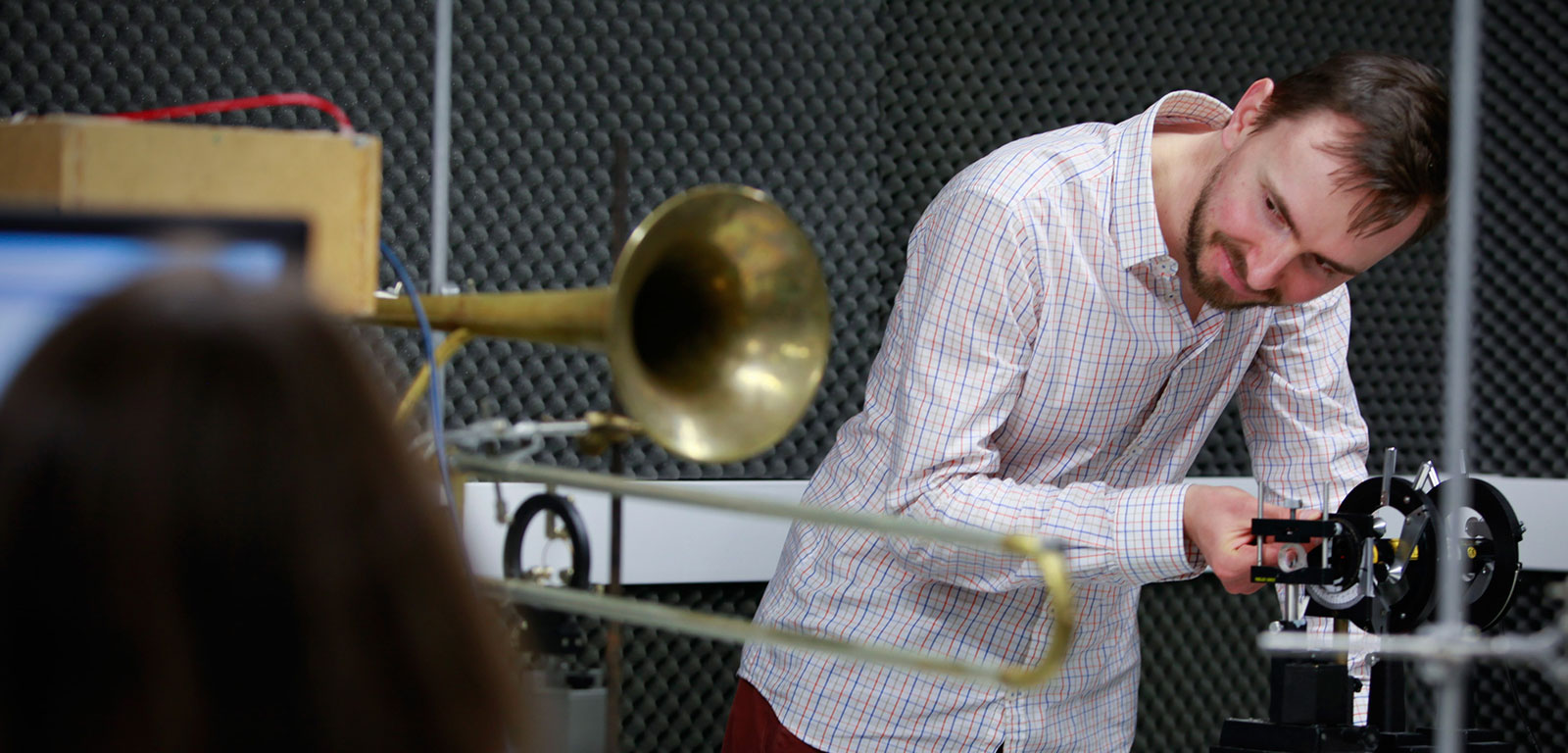

A UK 2:1 honours degree or its international equivalent in a science, electronic or music-related subject.
A numerate discipline such as physics, mathematics, computer science or engineering is particularly suitable for this degree programme.
If you do not meet the academic entry requirements, we may still consider your application if you have professional experience; please contact us to check before you apply
2021 entry:
A UK 2:1 honours degree, or its international equivalent in a numerate discipline such as Physics, Mathematics, Computer Science or Engineering.
Applicants with a Music or Music Technology degree may be considered, provided there is a significant component of mathematics and/or physics.
If you do not meet the academic entry requirements, we may still consider your application if you have professional experience; please contact us to check before you apply.
For 2020 entry we accept the following English language qualifications at the grades specified*:
IELTS: total 7.0 (at least 6.0 in each module)
TOEFL-iBT (including Special Home Edition): total 100 (at least 20 in each module). We do not accept TOEFL MyBest Score to meet our English language requirements.
PTE Academic: total 67 (at least 56 in each of the "Communicative Skills" sections)
CAE and CPE: total 185 (at least 169 in each module)
Trinity ISE: ISE III with a pass in all four components
For 2021 entry we will accept the following English language qualifications at the grades specified*:
IELTS: total 7.0 (at least 6.0 in each module)
TOEFL-iBT (including Special Home Edition): total 100 (at least 20 in each module). We do not accept TOEFL MyBest Score to meet our English language requirements.
CAE and CPE: total 185 (at least 169 in each module)
Trinity ISE: ISE III with a pass in all four components
*(Revised 21 February 2020 to remove PTE Academic from 2021 entry requirements. Revised 21 April 2020 to include TOEFL-iBT Special Home Edition in 2020 and 2021 entry requirements.)
Your English language qualification must be no more than three and a half years old from the start date of the programme you are applying to study, unless you are using IELTS, TOEFL, PTE Academic or Trinity ISE, in which case it must be no more than two years old.
Taking the science of musical sound as your focus, you’ll work in a cross-disciplinary environment, using theoretical and experimental work to explore the musical, technical and multimedia applications of acoustics and audio technology.
The programme aims to:
provide a broadly based, scientifically-oriented foundation in the area of acoustics, audio, and music technology
develop skills in research, computation, design and analytical problem-solving
create a multidisciplinary learning environment that will prepare the student for careers in which a strong understanding of music/audio technology is required
The emphasis of this programme is on science and technology in the context of musical and multimedia applications.
The MSc is taught by a combination of lectures, seminars, tutorials and practical work. Courses are assessed through a combination of report submissions and written examinations. In the final three months, you will carry out an individual project, which is assessed by submission of a dissertation.

A knowledge of the science behind music and music production can prove a great asset in your career. Qualified technicians and producers are in demand in all areas of music, as are acoustic scientists. The programme will provide you with the perfect foundation for further study if you’d prefer to continue on an academic path. The highly transferable skills you’ll gain in communication and project management will also take you further up whichever career ladder you choose to climb.
